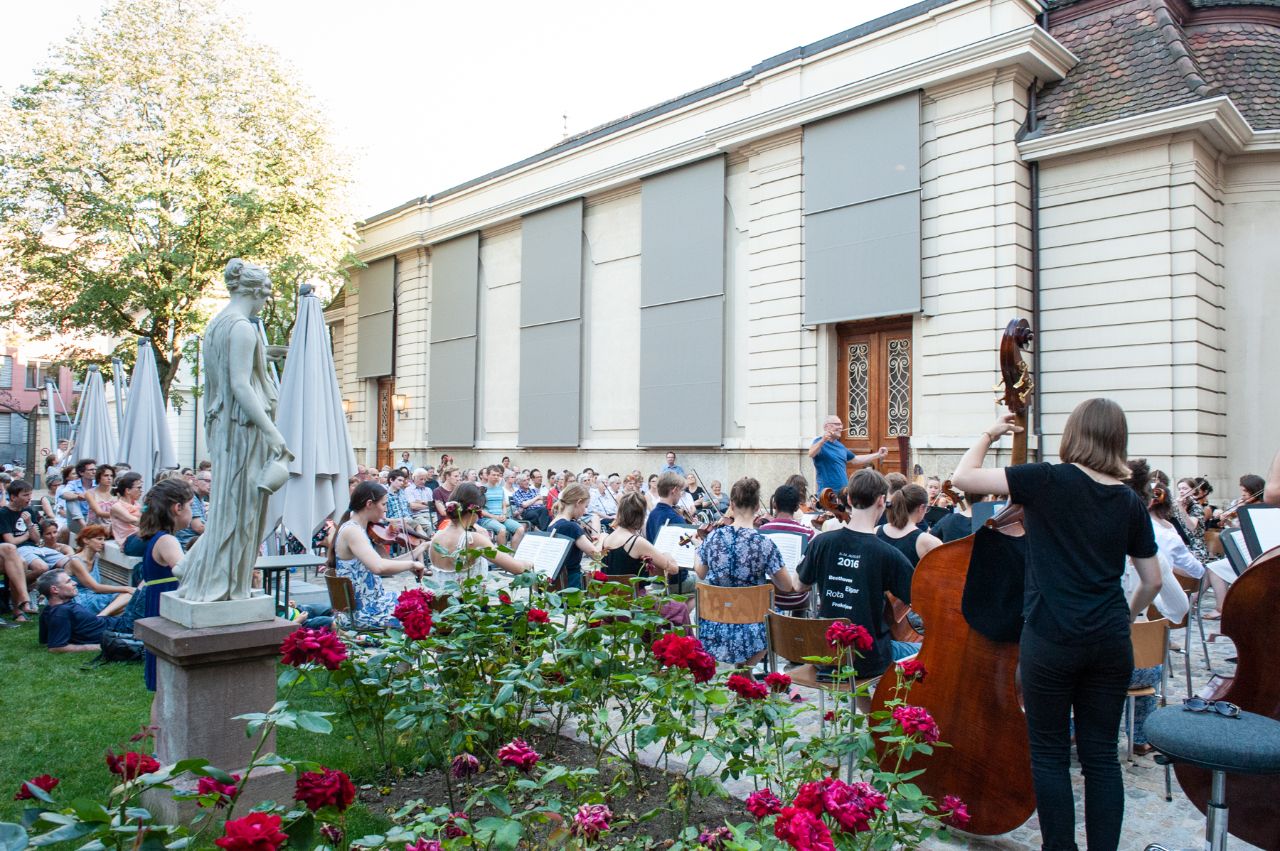Portrait

Open-air summer concert at the Musik-Akademie Basel
The Musik-Akademie Basel
A place for music and musicians
Since it was founded over 150 years ago, the Musik-Akademie Basel has always embraced change. Private initiatives and the political will to support the development of our institution in its role as a public education provider have empowered us and continue to empower us to innovate and evolve.
The Musik-Akademie Basel endeavours to bring the joy of making, listening and understanding music to a wider public, while spotting and nurturing talent. As one of the nine schools of the University of Applied Sciences Northwestern Switzerland (FHNW), the Music Academy produces professional musicians of the highest calibre. It is also an integral part of the musical and cultural life of Basel.
GGG – a driving force
The roots of the Musik-Akademie Basel go back to the founding of the 'Allgemeine Musikschule Basel' in 1867 by the GGG. In 1905, a music conservatory was established. Almost 30 years later (1933), Paul Sacher created the Schola Cantorum Basiliensis, which was initially a private institute specialising in Early Music teaching and research. In 1954, the three institutions were incorporated into the new Musik-Akademie Basel. By the end of the 20th century, the Academy had become an internationally acclaimed centre of excellence in the preservation of the tried and tested and the restoration of overlooked music genres. In 2008, the higher education section of the Academy became part of the University of Applied Sciences Northwestern Switzerland (FHNW). Thanks to the generous support of several private foundations, the Musik-Akademie Basel has successfully launched and completed three major constructions projects: the library (2009), the Jazzcampus (2014), and the renovation of the main auditorium (2017). These developments open up a world of opportunities for the Musik-Akademie Bsael.
Balancing tradition and innovation
The Musik-Akademie Basel is in sync with international trends and is itself a source of inspiration. Innovative projects and collaborations enable the Academy to establish new educational pathways. It also benefits from a strong network of cooperation partners, such as the University of Basel, music schools and colleges, as well as research institutions at home and abroad.
The Academy is also an important part of the dynamic cultural and research landscape of Basel, cooperating regularly with the city's orchestras and Theater Basel, among others.
Piazza, bar, café and performance venues galore
Most of the classrooms, which come well-equipped with instruments of all kinds, are arranged around two courtyards. In the centre of the Jazzcampus is a nice piazza and outdoor fireplace.
In addition to the four concert halls on the campus of the Musik-Akademie Basel, the Jazzcampus has its own club and two rooms offering the perfect sound environment thanks to their individual bespoke acoustic design. Every year, the two campuses play host to over 1,000 concerts. Each campus also has its own recording studio and a library which provides areas for quiet study and reading.
The beating heart of the Musik-Akademie Basel is the Caffeteria Bellini, a bustling, multilingual meeting point and thoroughfare. No less lively is the Jazzcampus's very own club and bar.